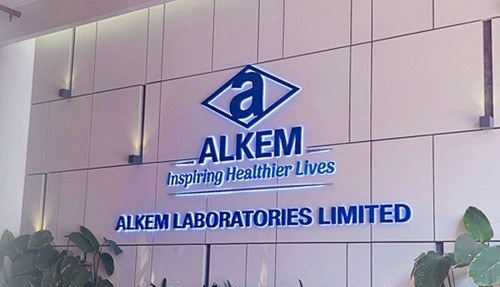When unexpected claims put cash flow, leadership focus, and community trust to the test, strong organizations hold solid because strong liability insurance covers expenses and helps them recover steadily instead of imposing unpleasant reductions. Injuries, data breaches, defective products, and contract disputes may happen at any time and cost more than what quarterly revenues can sustain. But well-planned coverage keeps payroll rolling, production steady, and partners quiet. Knowing why strong protections are important helps every business use its resources effectively before risks show up.
Guard Finances Against Surprise Costs

Liability claims often come with letters from lawyers that list medical bills, repair bills, and demands for compensation that are much higher than normal operating costs. Comprehensive business liability insurance can help cover defense teams, expert witnesses, and settlement costs, stopping any direct withdrawal from company reserves. Covered legal expenses alone may cost as much as years of staff training budgets, so transferring that burden to insurance safeguards development plans that are already in place. Policies issued at full replacement values cover the real cost of delay by paying for missed sales, vendor fines, and fast delivery for rectified items. This keeps cash flow and credit ratings consistent throughout long court deadlines. By locking in premium rates ahead of incidents, management converts unpredictable losses into predictable monthly entries that accounting teams can easily track. This way, strategic investments remain uninterrupted despite unforeseen litigation.
Safeguarding Legal and Regulatory Compliance
Many governments establish liability limits for corporations. Meeting these restrictions demonstrates that the organization follows safety, environmental, and employment requirements. Until it meets these criteria, the corporation must pay fines daily. As brokers keep an eye on expiry dates and adjust coverage limits as facilities expand or staff members increases, certificates submitted with licensing boards are quickly renewed. Insurers often provide safety assessments and risk-control specialists for free. These specialists identify risks like slippery flooring, unsecured wiring, or inadequate data processes before inspectors issue violations. Taking corrective action based on the advice of these experts improves the culture of compliance and decreases the number of claims, which earns premium reductions at renewal time and shows that the company did its homework when regulators look at incident history during permit renewals or grant applications.
Keeping the Trust and Reputation of the Brand
News of a client being hurt, a software breach, or pollution in the neighborhood travels swiftly on social media. But immediately settling claims with insurance money displays responsibility and empathy, which calms upset customers and journalists looking for someone to blame. Compensation given right away fixes damaged property, provides for medical care, and pays for credit monitoring. This transforms potential critics into advocates who recognize the company’s timely support. Insurance companies have crisis-communication teams that write concise statements and talking points. This makes sure that management communicates with a unified voice and doesn’t give out contradicting information that spreads rumors. Reputation restoration services fund website announcements, ad credits, and community engagement to restore trust. Strong protection protects your reputation and retains loyal consumers in tough times, as well as making money.
Ensuring Operational Continuity
Court orders may stop assets from being used or change management hours to focus on depositions. However, liability coverage provides substitute managers, temporary facilities, and specialist consultants, so assembly lines, stores, or cloud platforms don’t have to stop while legal issues are going on. That stability protects supplier contracts by making sure deliveries are on time and keeping staff morale high by sustaining consistent work shifts. Business-interruption extensions that are linked to liability settlements pay for continued rent, loan payments, and taxes. This lets departments concentrate on innovation, sales, or customer service without scrambling for emergency funds. Policy carriers also manage paperwork and negotiate claim timelines, which keeps internal teams from being distracted by administrative tasks. Continuous operations protect market share by making sure that rivals don’t steal customers when they are most susceptible.
Giving Stakeholders More Confidence
Before signing contracts, investors, banks, and big customers look at coverage portfolios. This is because adequate coverage limits show that risk won’t undermine dividends, loan payments, or long-term service agreements. Full policies that cover general, professional, cyber, and product liabilities make it possible to get greater credit lines at lower interest rates. This gives businesses the capital they need to buy new equipment and grow their operations throughout the world. Talented workers also think about how stable a job is, and knowing that the company has excellent protection against personal injury claims, harassment litigation, or intellectual property conflicts makes experienced experts more likely to accept job offers and stay with the company throughout tough market cycles. Putting clear coverage information in onboarding packages, yearly reports, and supplier agreements shows accountability and forethought, which attracts partners that prioritize continuous performance above short-term cost savings.
Conclusion
Strong liability coverage protects money, keeps the business legal, preserves brand reputation, maintains operations, and reassures investors. It simplifies unforeseen hazards into bills and tasks. With this protection, managers may improve and assist clients without worrying that one mistake could ruin years of work and money. Reliable coverage safeguards employment in tough times and reassures the public of the company’s integrity and accountability. Regularly checking coverage levels, new rules, and new businesses maintains the safety net solid so that the firm can confront tomorrow with calm strength and a strong focus on development.

